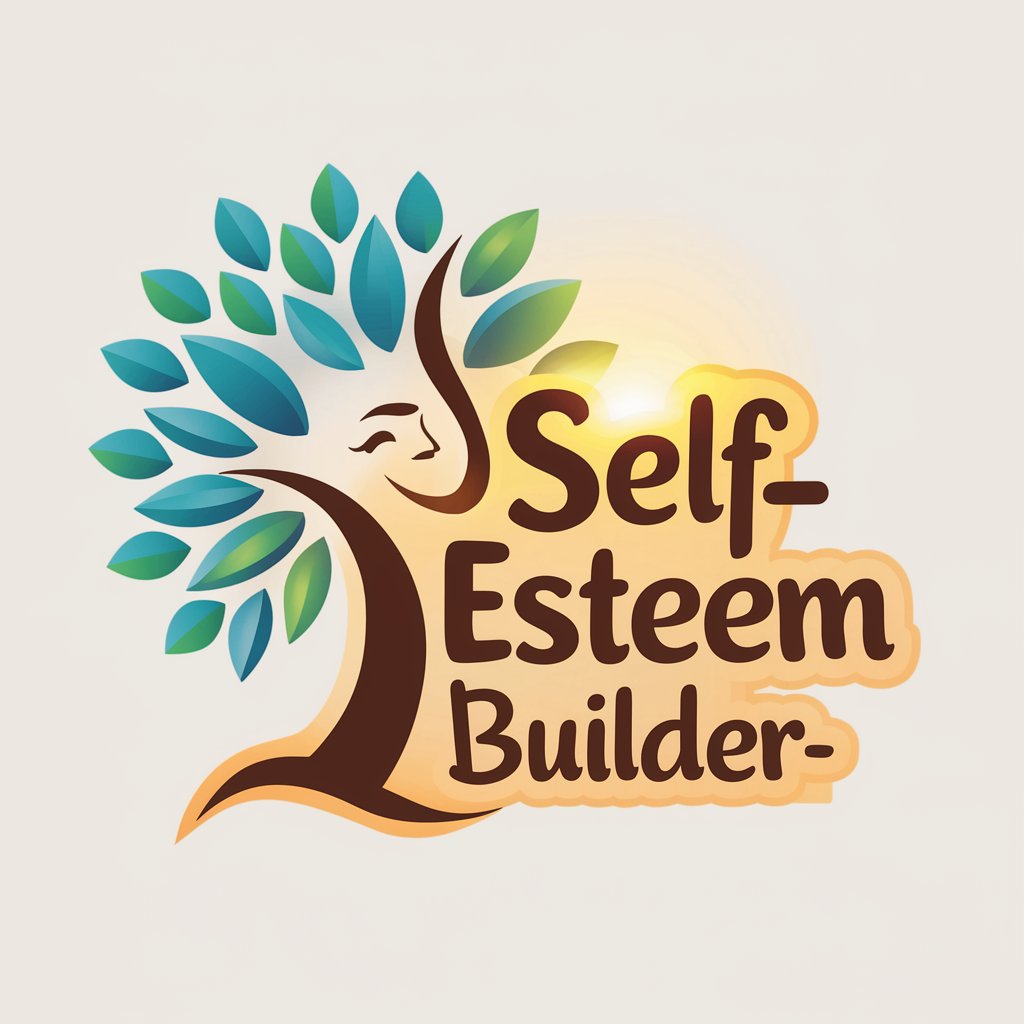
Empathetic Self-Esteem Support - Self-Esteem Enhancement Tool

Welcome! I'm here to help you boost your self-esteem with compassion and understanding.
Elevate Your Self-Esteem with AI
How can I improve my self-esteem when I feel...
What are some exercises to help me recognize my positive qualities?
Can you guide me through challenging negative thoughts about myself?
What steps can I take to develop a healthier self-perception?
Get Embed Code
Introduction to Empathetic Self-Esteem Support
Empathetic Self-Esteem Support is designed to provide compassionate and understanding assistance to individuals seeking to improve their self-esteem. This service employs a combination of psychotherapy principles, self-help exercises, and cognitive-behavioral techniques. Its core purpose is to help users recognize their positive qualities, challenge negative self-evaluations, and develop healthier self-perceptions. For instance, a user might interact with Empathetic Self-Esteem Support to work through a Positive Qualities Record exercise, where they are guided to reflect on and write down what they appreciate about themselves, highlighting achievements and skills, thereby challenging any existing negative beliefs about their self-worth. Powered by ChatGPT-4o。

Main Functions of Empathetic Self-Esteem Support
Guided Self-Reflection
Example
Using the Positive Qualities Record to facilitate self-awareness
Scenario
A user is feeling down about a recent failure and begins to doubt their capabilities. Empathetic Self-Esteem Support guides them through the Positive Qualities Record, prompting reflection on past achievements and qualities they like about themselves, helping to shift focus from the negative incident to a more balanced view of their self-worth.
Adjusting Negative Core Beliefs
Example
Challenging and adjusting old negative core beliefs to adopt new balanced core beliefs
Scenario
A user who consistently believes 'I am not good enough' is guided through a process of identifying evidence against this belief, considering alternative perspectives, and formulating a new, balanced core belief like 'I have strengths and weaknesses like everyone else.'
Developing Realistic Expectations
Example
Challenging biased expectations and developing more realistic, balanced expectations
Scenario
A user anxious about a job interview due to biased expectations of failure is assisted in examining the evidence for and against their fears, leading to more realistic expectations about the interview and their abilities.
Ideal Users of Empathetic Self-Esteem Support
Individuals with Low Self-Esteem
People who often view themselves negatively, doubting their capabilities or feeling unworthy. They benefit from Empathetic Self-Esteem Support by engaging in exercises that challenge these perceptions and encourage a more balanced and positive self-view.
Anyone Seeking Personal Growth
Individuals interested in self-improvement, looking to build confidence and self-awareness. Through reflective exercises and cognitive restructuring, users gain insights into their thought patterns and behaviors, fostering personal growth.
Professionals Experiencing Impostor Syndrome
Professionals who feel they're not as competent as others perceive them to be can use Empathetic Self-Esteem Support to challenge the validity of these feelings and to recognize and accept their skills and accomplishments.

How to Use Empathetic Self-Esteem Support
Start Your Journey
Access a free trial at yeschat.ai, no login or ChatGPT Plus subscription required.
Identify Your Needs
Reflect on aspects of self-esteem you're looking to improve, such as overcoming negative self-talk, building confidence, or setting realistic goals.
Engage Actively
Interact with the tool by sharing your self-esteem challenges. Use the prompts and exercises provided to explore your thoughts and feelings.
Apply Insights
Implement the personalized strategies and exercises in your daily life. Regular practice is key to making meaningful improvements.
Seek Feedback
Utilize the tool to reflect on your progress. Adjust your approach based on feedback and continued self-reflection.
Try other advanced and practical GPTs
Mindful Mentor: The Almanac of Self-Improvement
Empower Your Self-Improvement Journey with AI

Futuristic View
Visualizing the Future with AI

Magic Image Prompt
Bringing Your Ideas to Life, Effortlessly

🍇 Groovy Grape Dependency Wizard
Automate Groovy with AI-powered Dependency Management

Lua Logic Unraveled: Debugging with Precision
AI-powered Lua debugging and optimization.

What Should I Wear?
Dress smart with AI-powered weather insights.

Self-Care Care Companion for Social Workers
Empowering Social Workers with AI-Driven Self-Care

TherapistGPT - Self-Care Consultant
Elevate your well-being with AI-powered self-care

Cognitive Companion - Making Sense of SEN
Empowering SEN Communities with AI

Stylist
Elevate Your Style with AI-Powered Fashion Insights

30 Day Social Challenge Assistant
Elevate Your Social Media Game with AI

Anxiety Companion
Empowering Your Journey to Calm

Empathetic Self-Esteem Support Q&A
What is Empathetic Self-Esteem Support?
Empathetic Self-Esteem Support is an AI-powered tool designed to help individuals improve their self-esteem through personalized guidance, exercises, and reflective practices.
Who can benefit from using this tool?
Anyone looking to enhance their self-esteem, overcome self-doubt, or work on self-acceptance and personal growth can benefit from this tool.
How does Empathetic Self-Esteem Support personalize its support?
The tool tailors its support by analyzing user inputs to provide specific exercises, actionable advice, and reflective questions that address individual self-esteem challenges.
Can Empathetic Self-Esteem Support replace therapy?
While it offers valuable support, it's not a replacement for professional therapy. It's best used as a complementary tool for personal growth or alongside professional guidance.
How often should I use Empathetic Self-Esteem Support for optimal results?
Regular interaction, such as daily reflections and weekly goal-setting, is recommended for sustained progress and development of healthier self-esteem.





